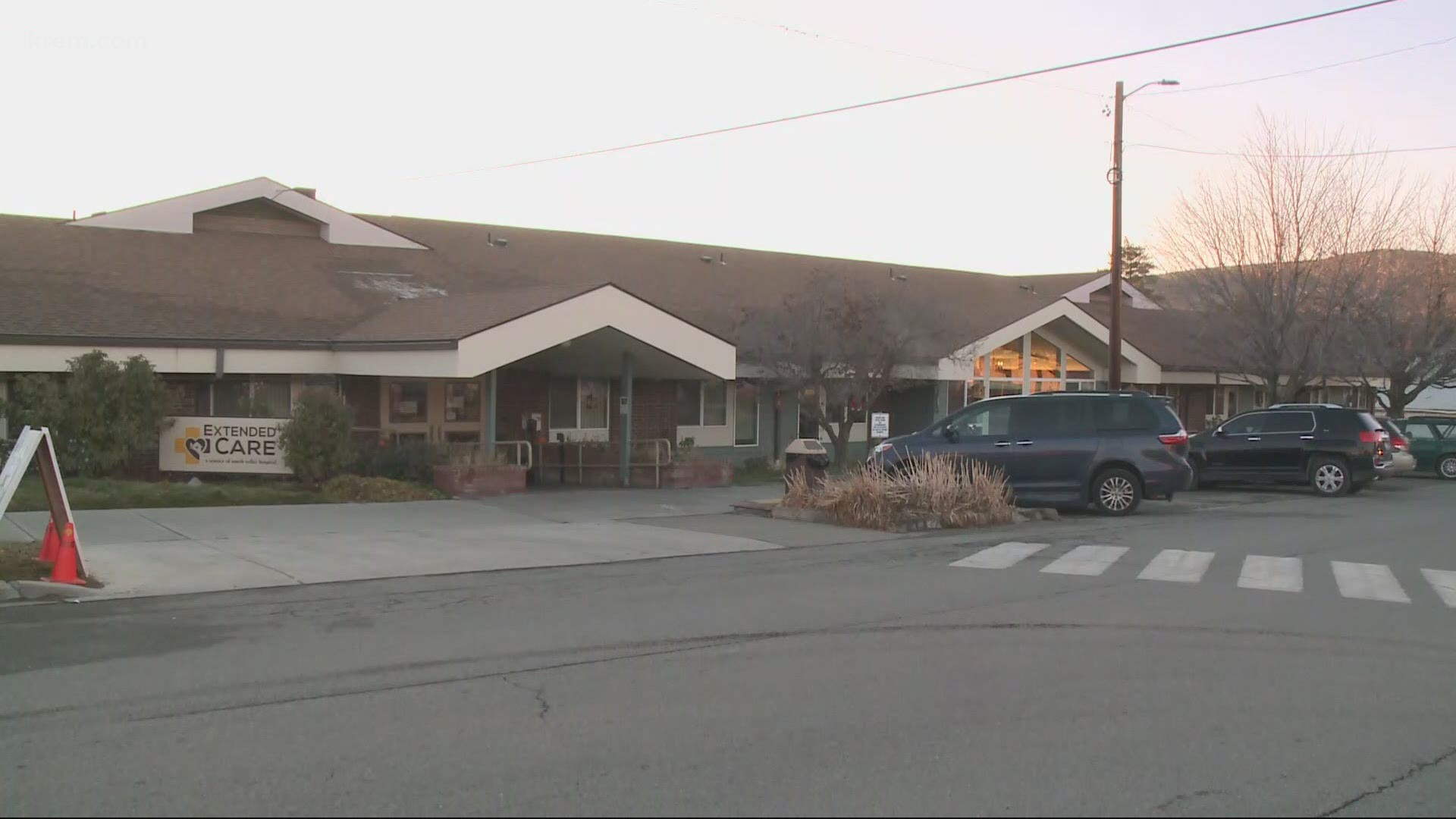SPOKANE COUNTY, Wash. — As coronavirus cases continue to impact nursing homes, the Washington Department of Social and Health Services plans to send six new teams made up primarily of nurses to long-term care facilities across the state, including Spokane County.
The teams will help care facilities facing staffing shortages due to COVID-19. Approved earlier this week, according to DSHS, the so-called Rapid Response Crisis Staffing teams will be comprised of eight contracted employees each.
The agency used $1.3 million in CARES Act funding to build the teams and worked with staffing agencies to bring on the healthcare workers.
"These are people that are willing to go into the epicenters, the hot spots," said DSHS spokesman Chris Wright of the rapid response teams. "They're very brave individuals who have signed up to do this."
According to DSHS, more than 400 long-term care facilities across the state have reported active coronavirus cases among staff members or residents. In Spokane County alone, more than 160 people have died due to COVID-19 at care facilities, according to Wright.
Long-term care outbreaks have often prompted employees to stay at home due to positive tests or exposure.
"A lot of these facilities are severely undermanned, just as it's peaking. So [the teams] are hopefully helping them out just a little bit as we go through this surge," Wright said.
DSHS said the teams will be sent to high-need counties based on virus reporting. For now, those include Spokane, Yakima, King, Pierce, Snohomish, and Clark counties. However, the teams can be deployed across the state should data trends change.
Wright called the teams "brand new" and said that facilities can start applying for assistance. As of Friday morning, no decisions had been made on where the teams would head.
"We'll be making those decisions based on need, and we know we can't help as much as everyone would prefer. But it should help some out," Wright explained.
The program has been authorized for one month, but DSHS says the Rapid Response teams could be extended if need continues.

